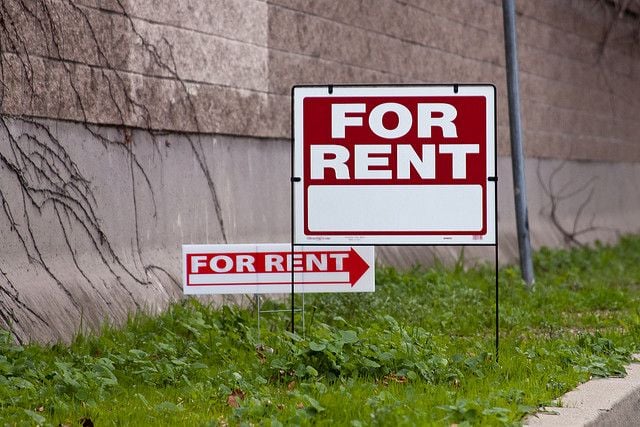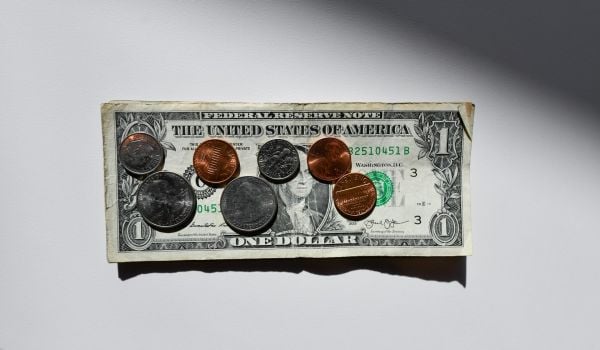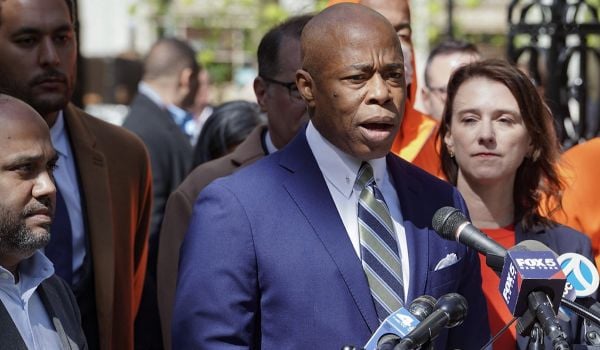The Case for Rental Assistance
The National League of Cities published a piece arguing that cities should use federal funds from the CARES Act to implement emergency rental assistance for tenants losing income because of the coronavirus outbreak. The protections in the CARES Act — which temporarily prevents evictions for a limited number of tenants in apartments with federally backed mortgages — are not sufficient, the authors argue.
“Paying rent on a monthly basis and the eventual repayment of unpaid rent are likely to become increasingly difficult for many Americans, particularly for those counted among the millions who have filed for unemployment or who have seen their work hours decline,” they write. “State, local, tribal, and territorial governments should take equitable steps to ensure that renters — especially those with the lowest incomes and those that have been disproportionately impacted due to structural racism — do not face an eviction cliff when moratoria are lifted.”
Cities can use funds from the CARES Act’s infusion of Community Development Block Grant and Emergency Services Grant money to create rental assistance programs, they say. Those funds total $9 billion that cities can spend on rental assistance, homelessness prevention, rapid rehousing and shelter operations. As the piece notes, cities that have enacted rental-assistance programs so far include Boston, Chicago, and St. Paul. As Next City previously covered, a rental assistance program in Orange County, Florida, was quickly shut down after being overwhelmed by demand.
Homeless Families Left Out of Emergency Housing
For the past few weeks, Philadelphia officials have been using a Holiday Inn hotel downtown to isolate people experiencing homelessness who have tested positive for COVID-19. But homeless families in the city are struggling to find shelter even as many hotel rooms remain open, because they’re only available to individuals, WHYY reports.
“When city officials reconfigured the Center City hotel as a quarantine site last month, they made accommodations for short-term stays for homeless individuals that had contracted the virus, not children and their parents,” the report says. “In addition to the Holiday Inn, the city has also opened two other quarantine sites with the goal of providing a safe place to people who cannot shelter at home, but those two are designed for first responders and do not currently accept homeless individuals.”
Housing advocates have praised cities’ decisions to turn to hotel rooms to house people during the coronavirus outbreak, but they don’t always meet the needs of families. Some large congregant shelters have also been hotspots for transmitting the virus. The Centers for Disease Control and Prevention’s recommendations for homeless service providers includes securing additional temporary housing for infected individuals, but does not include guidelines on how to serve homeless families.
It’s Getting Harder to Get a Mortgage
You might think that the economic uncertainty and lower interest rates caused by the pandemic would make the housing market more favorable for buyers. But lenders are worried that the economic downturn will lead to mass-scale mortgage defaults, so they’re being pickier about how they lend to, and some mortgage lenders are tightening standards for borrowers, the Philadelphia Inquirer reports. According to the report, new requirements include higher credit scores — at least 700 for Chase and 680 for Wells Fargo and US Bank — and much higher down payments. Chase, for example, raised its down-payment requirement from 3.5 percent to 20 percent, according to the report. That means that someone buying a median-value $250,000 home in the U.S. would need to save $50,000, rather than $8,750 — a much steeper barrier to homeownership for people with limited incomes. Some lenders have also stopped offering government-backed FHA loans, a typical mortgage product for first-time homebuyers, according to the report.
“The main problem for homebuyers with below-700 credit scores, high [loan-to-value ratios] and low down-payments is that lenders are starting to shy away from any perceived risk,” the report says. “As forbearance requests roll in, the strain on the mortgage industry amplifies. And there’s no telling when we’ll begin our trek back to pre-coronavirus days.”
This article is part of Backyard, a newsletter exploring scalable solutions to make housing fairer, more affordable and more environmentally sustainable. Subscribe to our weekly Backyard newsletter.

Jared Brey is Next City's housing correspondent, based in Philadelphia. He is a former staff writer at Philadelphia magazine and PlanPhilly, and his work has appeared in Columbia Journalism Review, Landscape Architecture Magazine, U.S. News & World Report, Philadelphia Weekly, and other publications.
Follow Jared .(JavaScript must be enabled to view this email address)


















